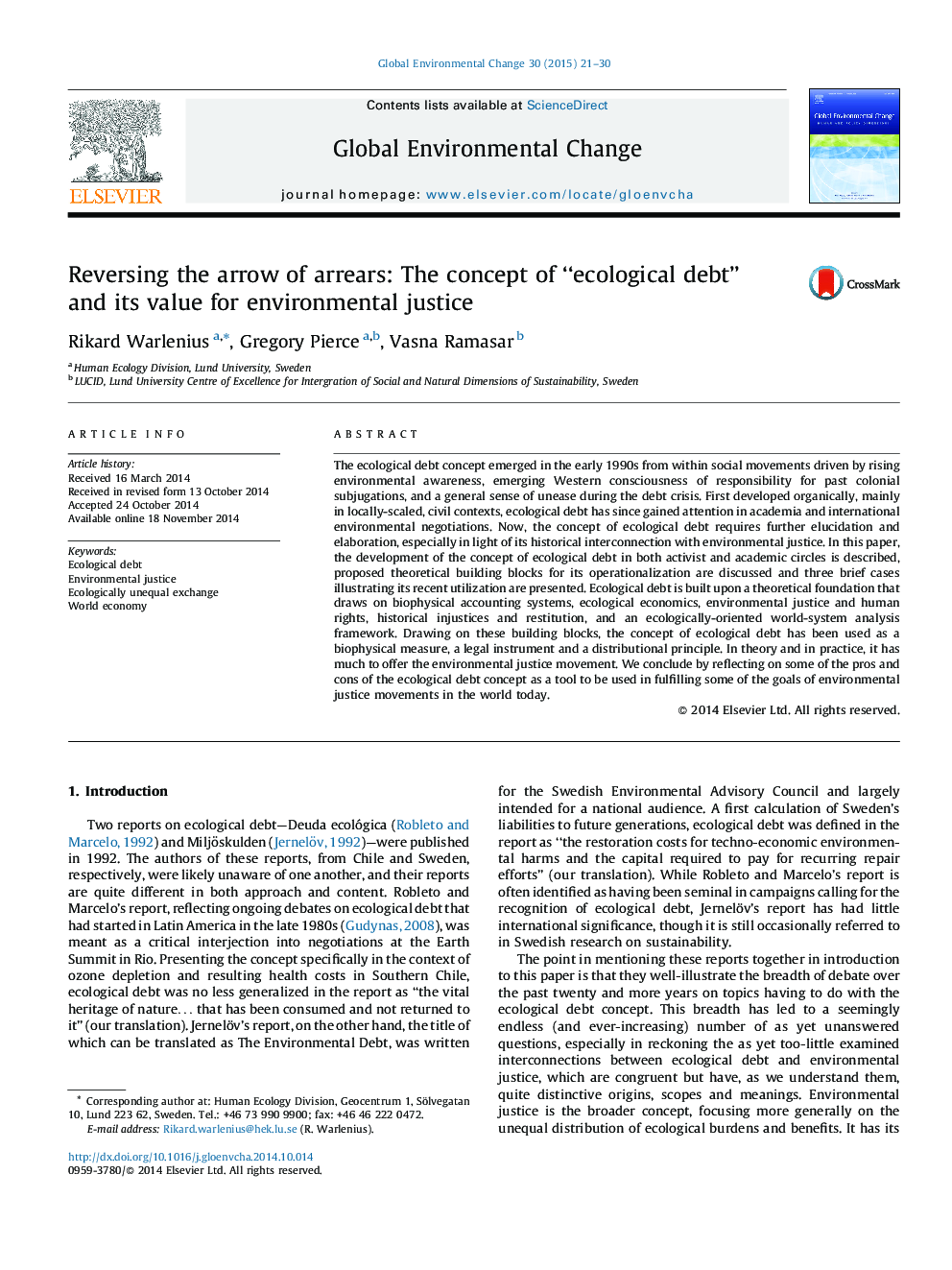| Article ID | Journal | Published Year | Pages | File Type |
|---|---|---|---|---|
| 1054666 | Global Environmental Change | 2015 | 10 Pages |
•The ecological debt concept has been the subject of extensive debate and definition.•Ecological debt and environmental justice are historically interconnected.•Five theoretical building blocks can be used to operationalize ecological debt.•Ecological debt can be a biophysical measure, legal tool or distributional principle.
The ecological debt concept emerged in the early 1990s from within social movements driven by rising environmental awareness, emerging Western consciousness of responsibility for past colonial subjugations, and a general sense of unease during the debt crisis. First developed organically, mainly in locally-scaled, civil contexts, ecological debt has since gained attention in academia and international environmental negotiations. Now, the concept of ecological debt requires further elucidation and elaboration, especially in light of its historical interconnection with environmental justice. In this paper, the development of the concept of ecological debt in both activist and academic circles is described, proposed theoretical building blocks for its operationalization are discussed and three brief cases illustrating its recent utilization are presented. Ecological debt is built upon a theoretical foundation that draws on biophysical accounting systems, ecological economics, environmental justice and human rights, historical injustices and restitution, and an ecologically-oriented world-system analysis framework. Drawing on these building blocks, the concept of ecological debt has been used as a biophysical measure, a legal instrument and a distributional principle. In theory and in practice, it has much to offer the environmental justice movement. We conclude by reflecting on some of the pros and cons of the ecological debt concept as a tool to be used in fulfilling some of the goals of environmental justice movements in the world today.
